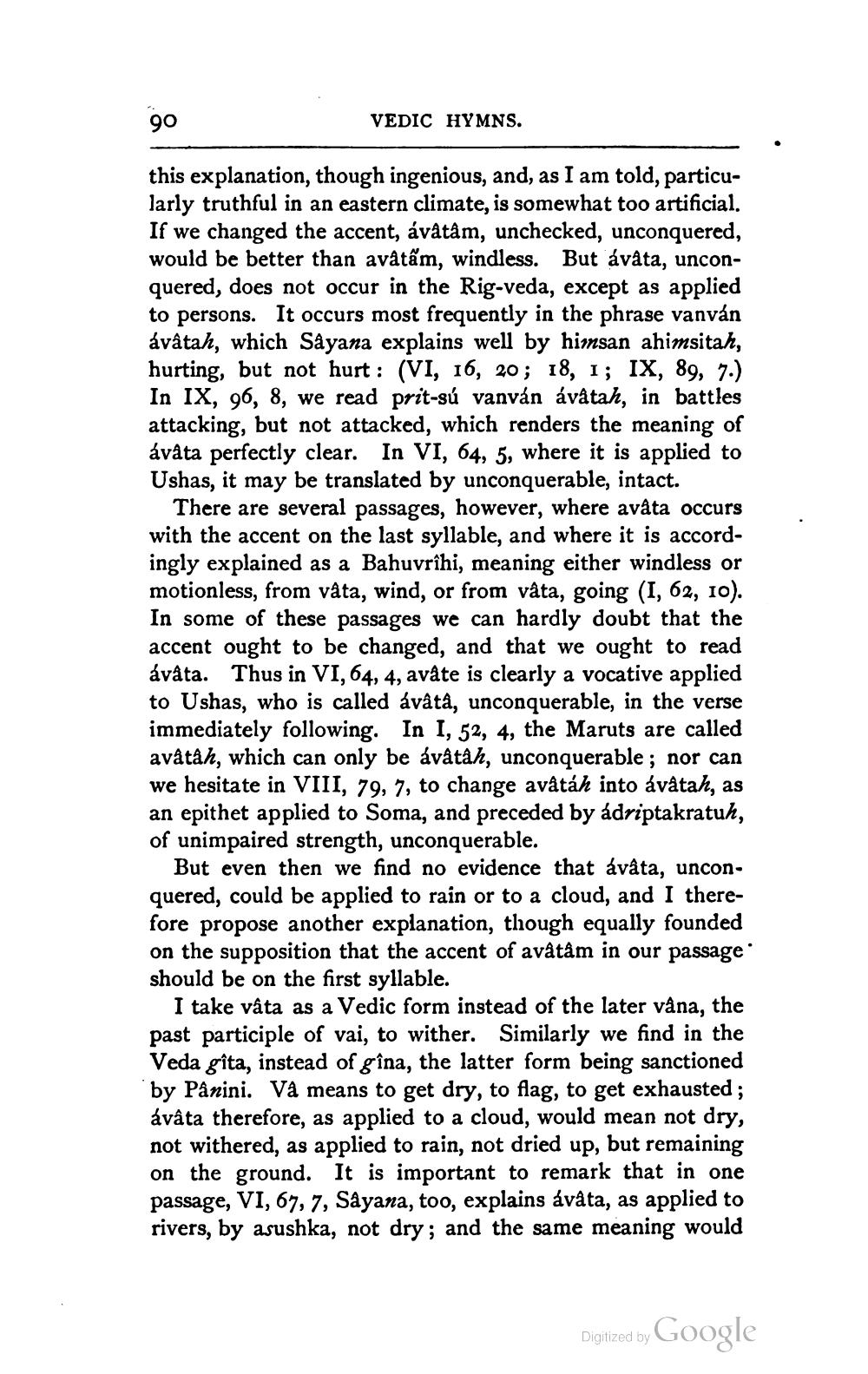________________
90
VEDIC HYMNS.
this explanation, though ingenious, and, as I am told, particularly truthful in an eastern climate, is somewhat too artificial. If we changed the accent, ávâtâm, unchecked, unconquered, would be better than avatấm, windless. But avata, unconquered, does not occur in the Rig-veda, except as applied to persons. It occurs most frequently in the phrase vanván ávâtah, which Sayana explains well by himsan ahimsitah, hurting, but not hurt : (VI, 16, 20; 18, 1; IX, 89, 7.) In IX, 96, 8, we read prit-sú vanván ávåtah, in battles attacking, but not attacked, which renders the meaning of ávåta perfectly clear. In VI, 64, 5, where it is applied to Ushas, it may be translated by unconquerable, intact.
There are several passages, however, where avâta occurs with the accent on the last syllable, and where it is accordingly explained as a Bahuvrihi, meaning either windless or motionless, from vata, wind, or from vậta, going (I, 62, 10). In some of these passages we can hardly doubt that the accent ought to be changed, and that we ought to read ávâta. Thus in VI, 64, 4, avâte is clearly a vocative applied to Ushas, who is called ávâtà, unconquerable, in the verse immediately following. In I, 52, 4, the Maruts are called avâtåh, which can only be ávåtåh, unconquerable ; nor can we hesitate in VIII, 79, 7, to change avâtáh into ávậtah, as an epithet applied to Soma, and preceded by adriptakratuh, of unimpaired strength, unconquerable.
But even then we find no evidence that ávâta, uncon. quered, could be applied to rain or to a cloud, and I therefore propose another explanation, though equally founded on the supposition that the accent of avatam in our passage should be on the first syllable.
I take vâta as a Vedic form instead of the later vâna, the past participle of vai, to wither. Similarly we find in the Veda gîta, instead of gîna, the latter form being sanctioned by Panini. Và means to get dry, to flag, to get exhausted ; ávâta therefore, as applied to a cloud, would mean not dry, not withered, as applied to rain, not dried up, but remaining on the ground. It is important to remark that in one passage, VI, 67, 7, Sayana, too, explains ávåta, as applied to rivers, by asushka, not dry; and the same meaning would
Digitized by
Digized by Google




